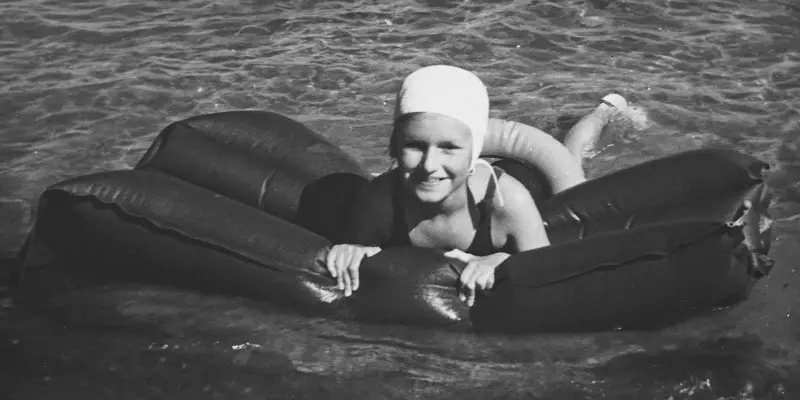Last Updated on January 6, 2025
Parenting is an enormous responsibility, filled with countless lessons and crucial skills to impart to our children. Amidst this daunting sea of learning, some abilities stand out more than others due to their potentially life-saving consequences. One such skill is swimming. It isn’t just a fun recreational activity but a crucial safety measure. Drowning remains the leading cause of accidental death among children, making the importance of early swimming lessons paramount, whether you have a pool or not.
Understanding When to Start Swim Lessons
When should you start teaching your children to swim? This is a common question among parents. The American Academy of Pediatrics (AAP) suggests introducing “swim lessons as a layer of protection against drowning” from the age of 1. However, it’s crucial to remember that every child is unique, developing at their own pace. As parents, understanding your child’s comfort level and specific needs in the water is essential.
Adults Learning to Swim
What if you, as a parent, are unfamiliar with swimming? There’s no time like the present to learn. Enrolling in an adult swim class can give you the confidence you need in water and also equip you with this vital life skill. There’s no age limit to learning, and the benefits it brings – keeping your family safe and opening doors to a world of aquatic fun – are priceless. An excellent example of a well-regarded program is the Aquatic Achievers Brisbane swim schools, known for their high-quality swimming classes.
Fear of Water: Addressing Your Concerns
If you harbor a fear of water, the key is to prevent your child from inheriting this apprehension. Consider joining a class to help you overcome your fear, allowing you to accompany your child in the water. If that seems challenging, delegate this task to a trusted adult or caregiver. Observing the classes and watching your child adapt to the water can be a fulfilling experience too.
Parent-Child Toddler and Preschool Swim Classes
Research shows that swim lessons can significantly decrease the risk of drowning for children aged 1 to 4. Given the alarming fact that drownings are the leading cause of accidental deaths in children – with the numbers sadly escalating – the importance of such lessons cannot be overstated.
Infant Swim Classes
While actual swimming lessons aren’t recommended by the AAP for children younger than 1 due to their underdeveloped breathing skills, aquatic classes can be fun and help infants get used to being in the water. The crucial point to remember is, at this tender age, constant supervision is needed whenever they are in or near water, regardless of their exposure to water-based activities.
Evaluating Aquatic Programs or Swim Classes
Finding the right swimming class involves scrutinizing the qualifications of the instructors. Ensure they are certified as lifeguards and trained in first aid and resuscitation by the American Red Cross. For infant classes, it’s advisable to avoid any instructor or class that guarantees to teach children under 1 to swim.Observing a class before signing up is also beneficial. It offers a firsthand look at the instructor’s approach, the attention each child receives, and the overall vibe.
Involving Parents in Swim Classes
For children under 4, parents are strongly recommended to participate in the class. Not only will you be there to supervise, but it also allows you to pick up valuable safety habits and spend quality time observing your child’s progress.
Encouraging Reluctant Swimmers
If your child seems uninterested or even fearful, don’t force them. Instead, communicate with your instructor about sticking to water play until your child naturally becomes curious about swimming. It’s crucial to avoid creating a traumatizing experience for both of you.
By the age of 4, most children possess the necessary coordination to master swimming strokes. They can start learning basic water survival skills, such as floating, treading water, and finding an exit point.
Affording Swim Lessons
If budget constraints worry you, remember that many towns and cities offer scholarships for swim lessons. Your local recreation and parks department may also provide low-cost options.
Knowing When to Stop Swim Lessons
Once your child masters water safety and swimming to your satisfaction, you can decide whether to continue. If they show interest in progressing to more challenging classes and your schedule and budget permit, go for it. If they’ve mastered the basics and show no interest in learning more, it’s acceptable to end lessons.
Addressing Lack of Progress
If your child, particularly those older than 4, isn’t showing progress despite repeated classes, consider switching classes or instructors. Not all methods work for every child. Remember, perseverance is the key.
No child can be entirely “drown-proof,” regardless of their swimming proficiency. Supervision remains essential for any child near a pool or large body of water. Guidelines vary, but safety should always be your primary concern. For instance, Broward County, Florida, suggests not leaving any child under 12 unsupervised when swimming, but ultimately, it’s your call as a parent.
Learning to swim at an early age is more than acquiring a new skill; it’s empowering children with the ability to save themselves in aquatic situations. As parents, we bear the responsibility to equip our children with this essential ability and instill safe habits in and around water. Prioritizing swimming lessons today will help create a safer tomorrow for our children.








